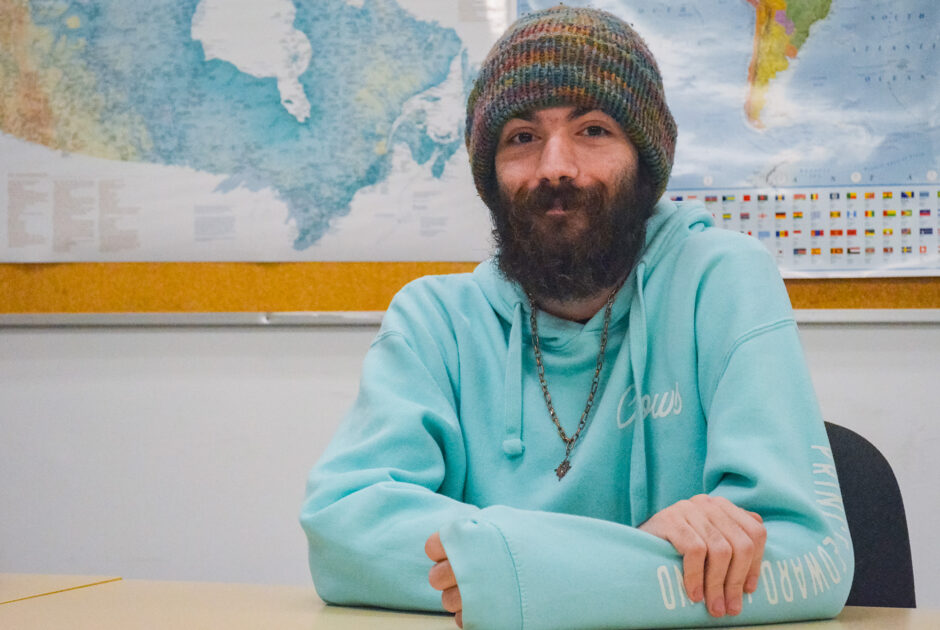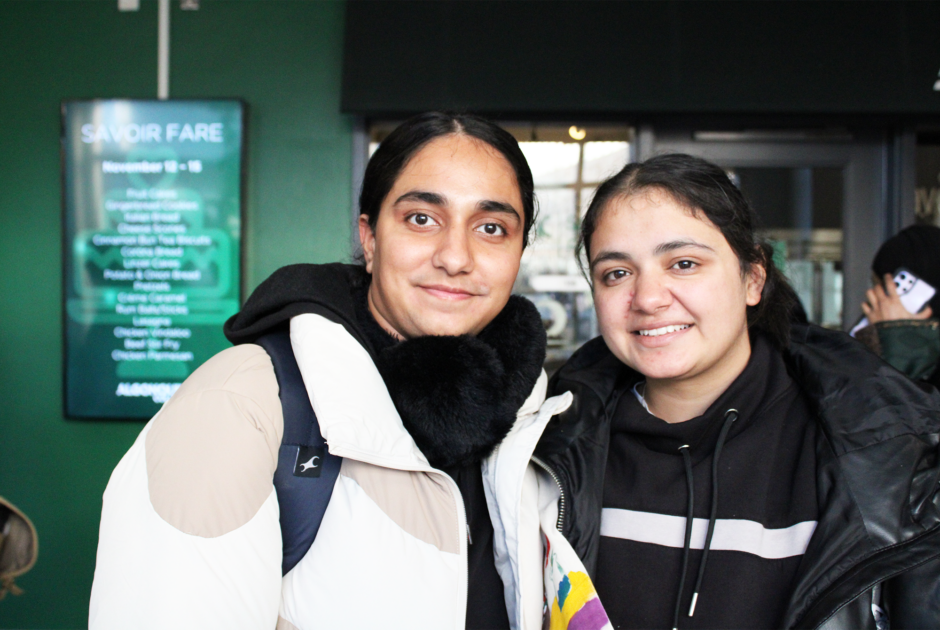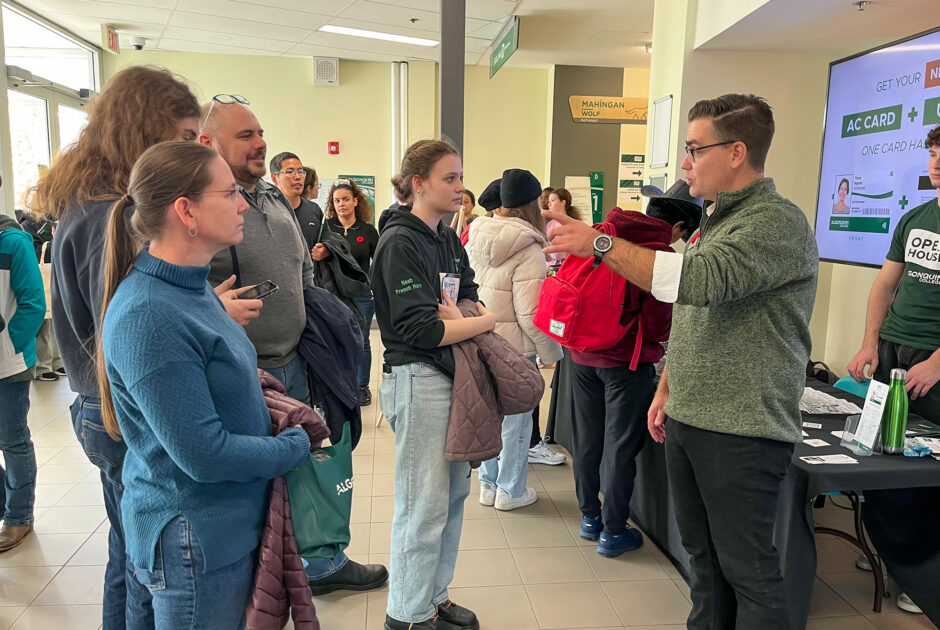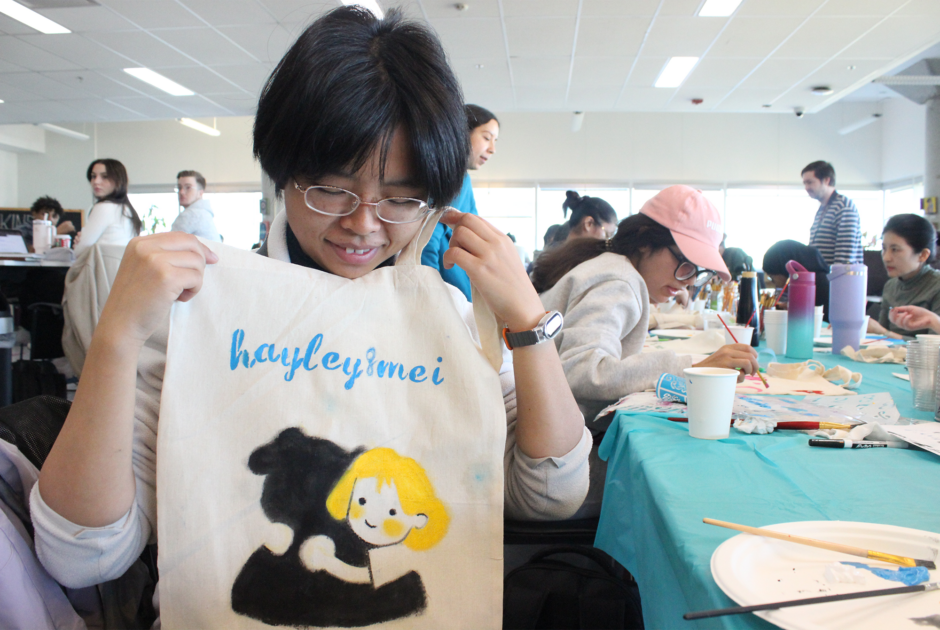Ceremony opens college events on Truth and Reconciliation Day
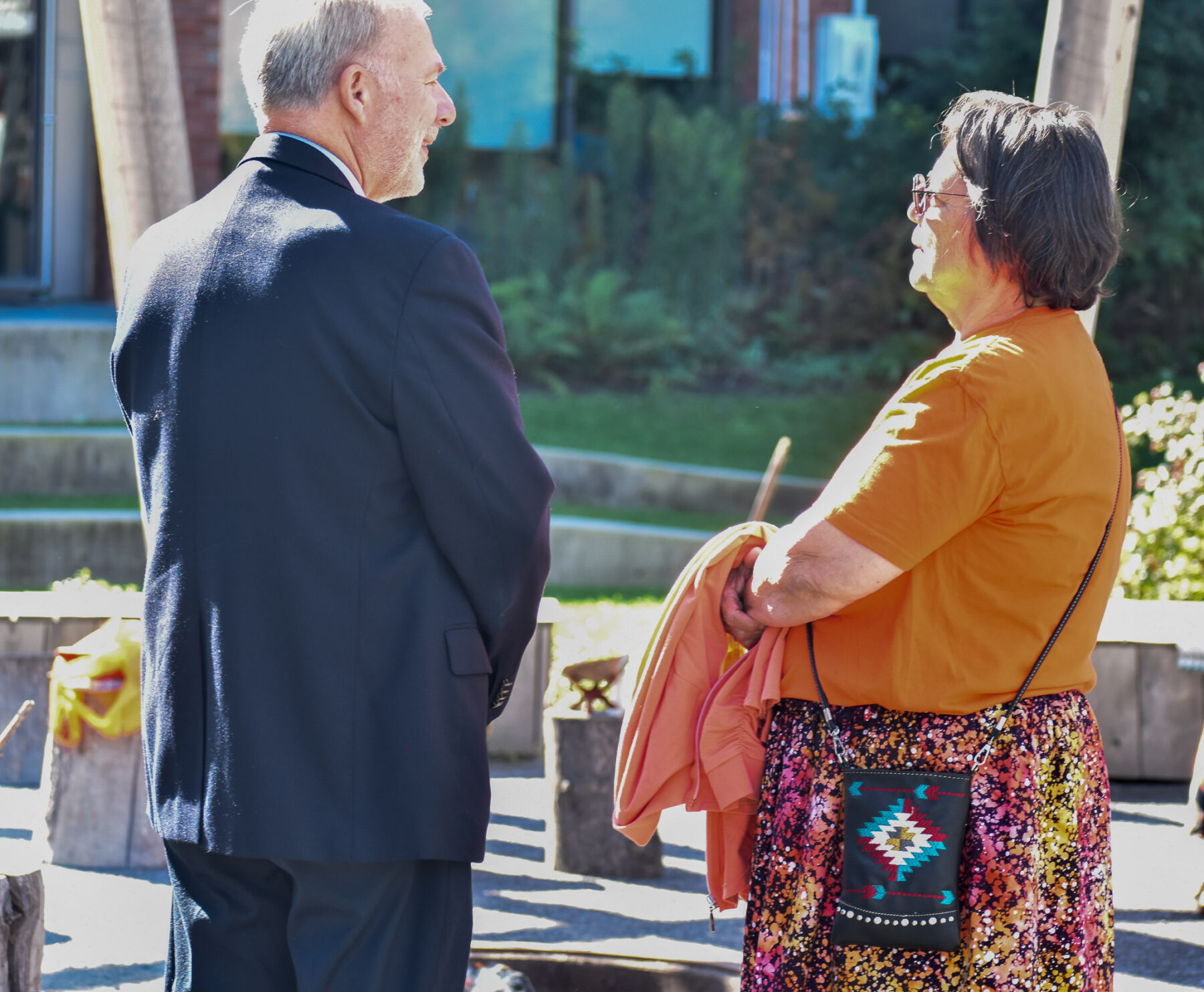
The Recognition Opening Ceremony was held in Nawapon at the Algonquin College Ottawa campus on Sept. 30, the National Day for Truth and Reconciliation. It opened with the drumming song and tobacco offering from traditional singer Awema Tendesi.
The National Day for Truth and Reconciliation honours the children who died, the survivors, their family and the community. It’s a day that recognizes the tragic history and shame of residential schools.
Algonquin College president and CEO Claude Brulé welcomed Ottawa Mayor Mark Sutcliffe, Indigenous advisor Jenny Tenasco and College Ward councilor Laine Johnson to the Ottawa campus.
“If you get the opportunity to talk to an Indigenous person, sit down with them and invite them for coffee. Ask them about their experience, because I’m only one person. My experience is different from everybody else’s so there’s a lot of stories to be told,” said professor of Indigenous education Sarah Wright.
Wright was at the event and shared her journey of healing with the people who attended the ceremony.
“I went to do my master of education and training…I was focused on Indigenous ways of knowing and it’s in those spaces where you would…feel heard, we feel seen and supported,” said Wright.
Brulé spoke about his vision of how the college can contribute to truth and reconciliation within the community.
“There are two components. My vision is to ensure first of all that our First Nation communities really feel a sense of belonging at the college…today’s reality of education is a pathway to prosperity for everyone. The second piece there is that people learn their history, their truth and can participate in their healing,” Brulé said.
Wright read The Orange Shirt by Phyllis Webstad to the children from the Early Learning Centre.
“Her bright orange shirt was taken away and she worried how long she would have to stay,” said Wright as she read the storybook.
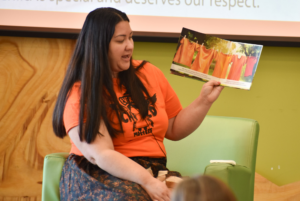
She gave the attendees advice on how to help the healing process for others. “Perhaps the next generation will grow up and have an understanding that can affect real changes in attitudes and understanding,” said Wright.
The college is making efforts integrate progressive changes. Brulé shared a personal reflection on his journey regarding truth and reconciliation. “I speak to elders and knowledge keepers, storytellers and listen to the communities. We really could learn about history and talk,” said Brulé.
“The new program we have includes different perspectives. We have to change it to allow people to feel included. To me that is a great step forward,” said Brulé.
Brulé and residential school survivor Tenasco, 72, walked around the garden area of the fire pit and talked.
Tenasco said she was also visiting different institutions and the Mamidosewin Centre. She was sharing her story, giving suggestions to the college and meeting with students.
“What I would want people to take away is that we have to keep truth and reconciliation in our minds and our hearts and reflect on the work that we have done and recommit ourselves to moving it forward in the future,” said Wright.
— with files from James Gray





